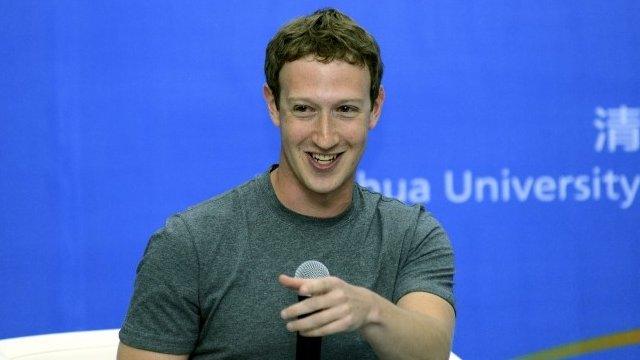Facebook sorry for Tiananmen picture frame rejection
- Published
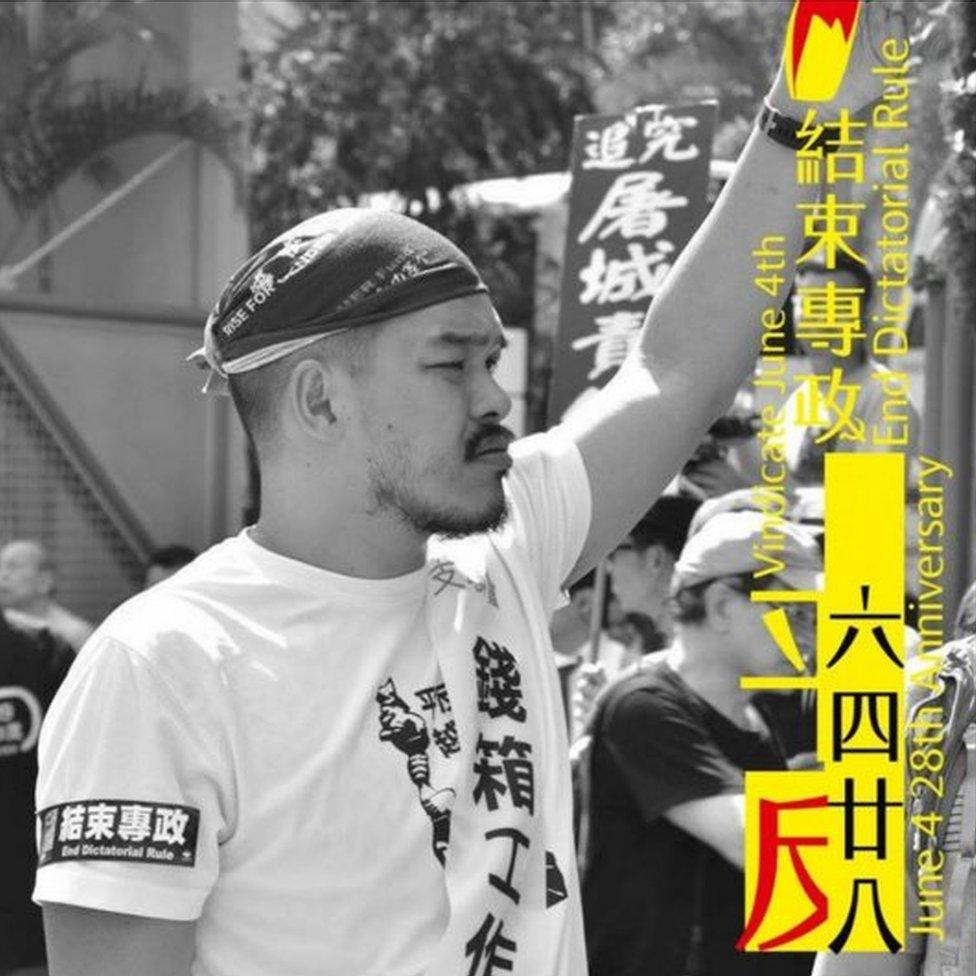
Hong Kong activist Fung Ka Keung's profile picture frame was later approved
Facebook has apologised for "incorrectly" rejecting a Hong Kong activist's profile picture frame referencing the Tiananmen massacre.
Fung Ka Keung had designed a layer of text, known as a frame, for his profile picture to commemorate the incident.
But it was rejected on the grounds it "belittles, threatens or attacks a particular person, legal entity, nationality or group".
Facebook was accused of having political motivations for the move.
The network has been blocked in China since 2009, and is thought to be keen to re-enter the market.
The Tiananmen Square massacre, which saw hundreds of activists killed on 4 June 1989, is highly sensitive in China.
China bans all activists' commemorations and highly regulates online discussion of the incident, including censoring criticism. But it is marked annually by activists elsewhere in the world, particularly in Hong Kong and Taiwan.
Political questions
Since December, Facebook has allowed users to design text and graphics as frames to overlay on their profile pictures. This feature is often used by activists to champion causes or in the wake of attacks of natural disasters.
All frames must be submitted for Facebook's approval before they can be used and shared with other users.
Mr Fung said on his Facebook page that he submitted his Tiananmen-themed frame for approval on Friday.
The frame states in a mixture of Chinese and English: "June 4 28th Anniversary", "Vindicate June 4th" and "End Dictatorial Rule".
On Saturday, he was told the frame was rejected because it "belittles, threatens or attacks a particular person, legal entity, nationality or group".
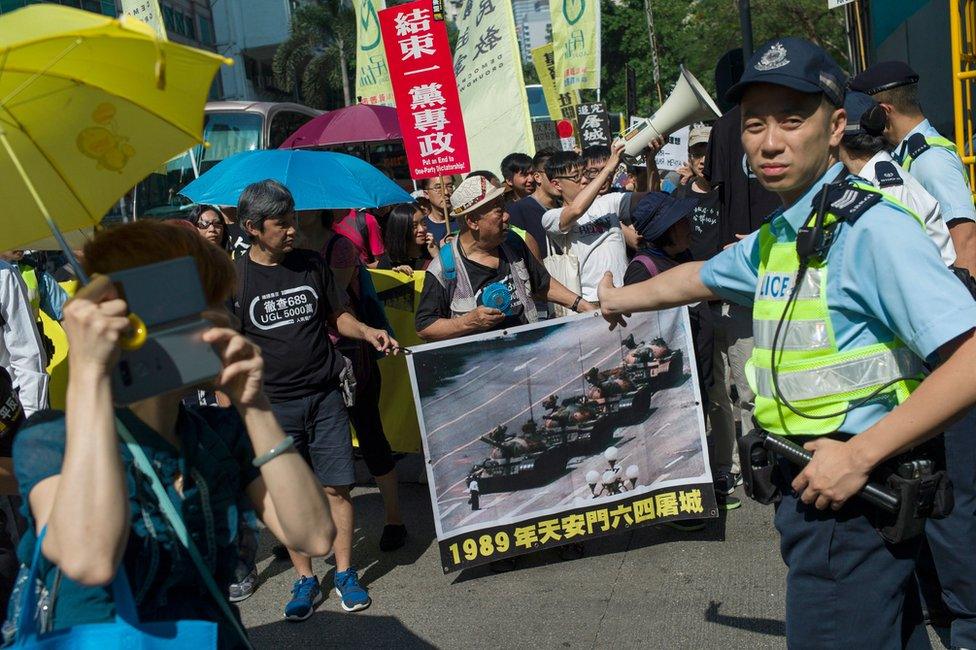
Activists in Hong Kong held a Tiananmen commemoration on Sunday
But Facebook this week reversed its position and approved the frame, following reports in Hong Kong media outlets, some of whom questioned whether it was an act of censorship. A second similar frame created by Mr Fung was also approved.
A spokesperson told the BBC: "The frame was disapproved incorrectly. We apologise for this mistake and have let the user know we approved his submission."
Mr Fung told the BBC that about 2,600 users were currently using the frames, and that he felt Facebook had made some "pretty strange decisions".
"I wouldn't be surprised if political motivations were behind the decisions," he said. "I doubt they would have been approved if what happened wasn't publicised."
Facebook declined to comment further on this or on the process behind the original rejection.
The Tiananmen massacre happened when the Communist Party sought to end weeks of pro-democracy protests in Tiananmen Square in Beijing.
It sent in the army to crush the protests, resulting in the deaths of hundreds of activists, many of whom were young students.
- Published2 June 2014
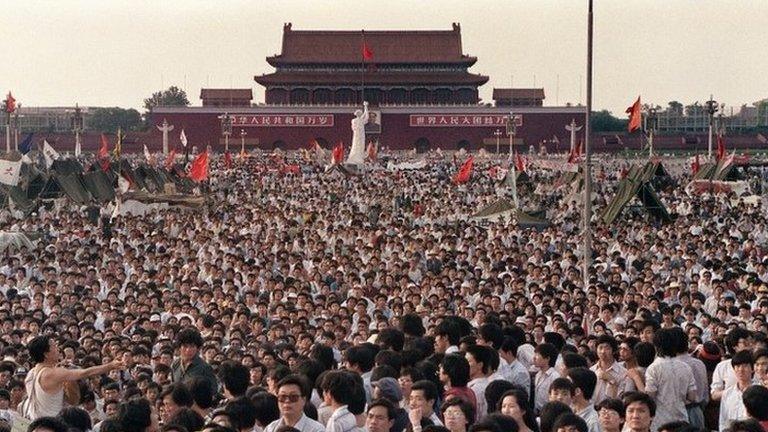
- Published22 March 2016
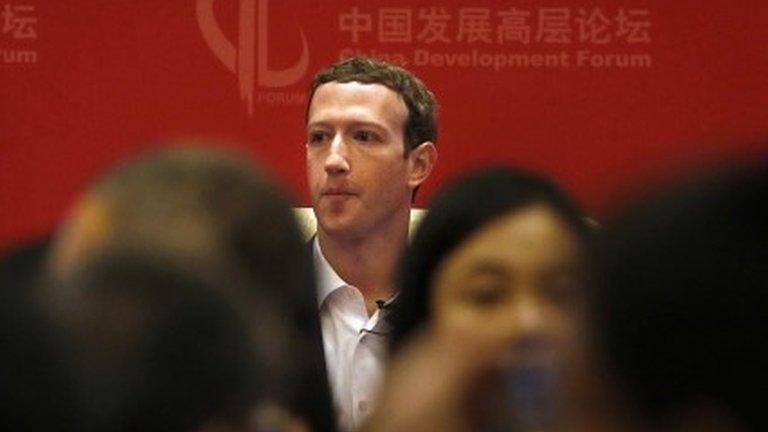
- Published23 October 2014
